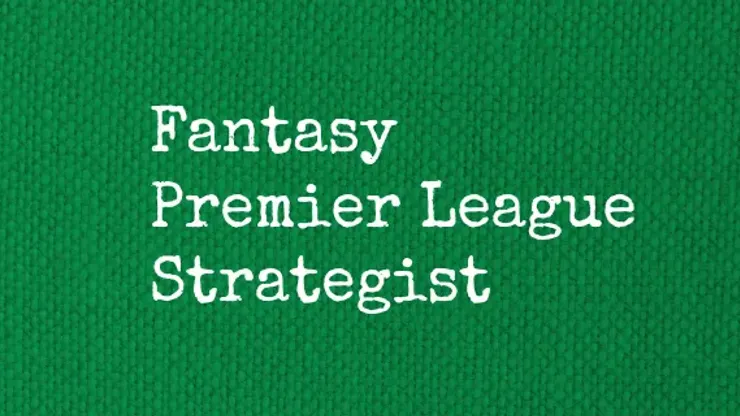You can make some great decisions in the Fantasy Premier League game: bringing the right players in and out at the right time, choosing the right defenders to bench each week, and so on. But the most important decision, the one that will make or break your Gameweek more often than not is choosing the right captain. Getting it wrong, even when your overall score for the week is a solid one, can cause a dark cloud hanging over you, as you double your 2 points to 4, while another player throws up a 15 that could have been 30. It is enough to develop an ulcer.
There is no one secret that can be shared to provide you with the right method of choosing a captain in a given Gameweek. But what follows, I feel, are the most important factors in determining your captain. Combine these factors to assist in making your selection.
1.) Consistency Overall – Does this player produce more often than not? There is a reason Robin van Persie costs £14million. Not only does he score regularly from match to match, he is capable of bagging a brace or more in any given fixture. Any player can pop up with a big score—do not rely on a player having a big previous gameweek as the sole reason for giving him the armband. Look at his performance record. Has the player scored/assisted multiple goals before? The more consistent a player is, the likely more expensive they are in the game, and when they play, are the most reliable. But there are other things to consider…
2.) Current Form – How has the player done in the past 2-4 matches? While one big Gameweek can be achieved by any random player, several good games in a row is a pattern. If I have RVP and Christian Benteke, and in the past four matches, Benteke has scored three goals to RVP’s zero, I’m going to side with Benteke. This is especially true for strikers. Their output is more goal reliant than anywhere else. If they are not in form, you are facing a high probability of a 2 pointer doubled to 4.
3.) Opponent – With all other factors being equal, I will take someone like Michu vs Sunderland over Olivier Giroud vs Manchester United. Odds are, players with equal form and consistency will fare better against bottom side clubs rather than the top clubs. Simple logic, the better teams are tougher to score against if you captain an attacker, and are tougher to keep out of goal if you are captaining a defender.
4.) Home Game – Predictably, more often than not, a player produces better at home. Like most things, there are exceptions to the rule, but for the most part, when looking at a player’s fantasy output over the course of the season, you will find more points scored overall at home. This should not be a primary reason to captain, but it provides another tiebreaker when trying to choose between your options.
5.) Injury/Rotation – Rotation is especially important for teams in Cup play. Clubs who are playing a heavy schedule with midweek games are more likely to rotate players, causing headaches for fantasy managers. Chelsea players are especially dangerous to captain. Outside of their keeper, Jose Mourinho has a ton of world class players at his disposal. With Champion’s League aspirations, he has no qualms about resting a star player at any given time. Eden Hazard is an example of a player that would be perfect for the armband, assuming the above mentioned criteria has been met. But know the risks. What is especially painful about rotation is, the player you captained does not get the start, but makes a sub appearance in the 85th minute, contributes nothing, and you have just doubled a 1-pointer into a 2-pointer. Avoid rotation threats. As far as injuries go, pretty self-explanatory. If there is even a slight doubt about a player’s fitness, better to play it safe and look elsewhere.
Generally an attacking player is preferred when choosing the captain, but as we have seen, especially with this year’s change in the Bonus Point system, defenders have to be considered as well. I think most managers tend to avoid doing it because if you lose that clean sheet five minutes in, it appears to be a failure with 85 minutes to go, whereas a striker sitting on 2 points in the 85th minute always has a shot at coming good in the final five. If you play a defender, consider one that has attacking potential to go along with his clean sheet potential. Players like Seamus Coleman and Pablo Zabaleta are atop the current leaderboards thanks to their clubs ability to keep clean sheets and for their attacking threat, which they achieve by playing farther forward. Measure these factors and pick the right captain!
May your arrows be green.
Editor’s note: Join the World Soccer Talk private league version of Fantasy Premier League so you can compete against the readers and editors of World Soccer Talk. Discover how to join our private league for free today.
200+ Channels With Sports & News
- Starting price: $33/mo. for fubo Latino Package
- Watch Premier League, Women’s World Cup, Euro 2024 & Gold Cup
The New Home of MLS
- Price: $14.99/mo. for MLS Season Pass
- Watch every MLS game including playoffs & Leagues Cup
Many Sports & ESPN Originals
- Price: $10.99/mo. (or get ESPN+, Hulu & Disney+ for $14.99/mo.)
- Features Bundesliga, LaLiga, Championship, & FA Cup
2,000+ soccer games per year
- Price: $5.99/mo
- Features Champions League, Serie A, Europa League & Brasileirāo
175 Premier League Games & PL TV
- Starting price: $5.99/mo. for Peacock Premium
- Watch 175 exclusive EPL games per season






